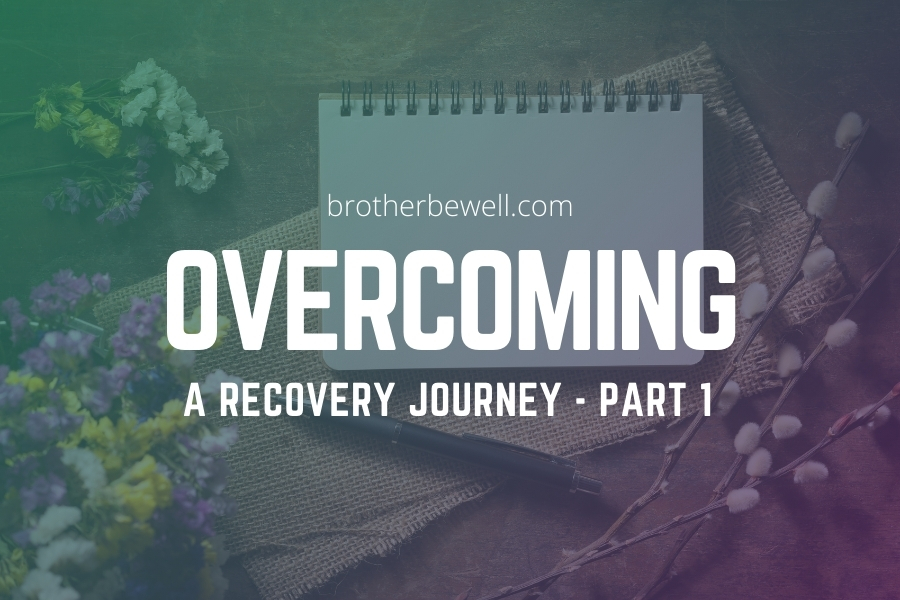“I knew the way I was living wasn’t normal,” says Mykel Gayent, “but I was satisfied with life as it was. I was thinking, you know, this could go on forever.”
In a deep, comfortable Californian drawl, Mykel tells his story with the steady, grounded style of a practiced speaker. He doesn’t shy away from the details, the darker aspects of his past that shaped many of his struggles with addictions and mental health.
Mykel’s story began before he can properly remember it. Given up as a toddler by his birth mother, he’d experienced abandonment before he even understood what it meant. Though he can hardly recall her, separation from that one source of security that every child needs must have torn a hole in his young heart. Mykel never knew his biological father, a fact that torments him to this day. He grew up thinking his father had passed away in the 70’s, only learning in 2003 that the real year of the man’s death was 1996. “To think I may have had the chance to meet him,” he muses regretfully. Without the influence of his blood parents, Mykel was thrust into a world without a chance to know his roots.
Still, for the first decade or so of his life, Mykel grew up in a loving and supportive home with his adoptive parents. Though never formally adopted, he received their surname. In young Mykel’s eyes, his adoptive mother, Zenobia, was more a mother to him than the woman who had given him away. She loved him fiercely and unconditionally, caring for him as though she herself had been the one who gave birth to Mykel.
David, Mykel’s adoptive father, seemed at first to be an equally excellent parent. He checked all those “Dad activities” right off the list: David took young Mykel fishing, and to baseball and football games. He even got Mykel into one of the San Francisco 49ers practice sessions; as a kid, it was a dream come true to see the famed team at work. All these years later, Mykel still remembers meeting quarterback John Brodie. Basking in the warmth of a loving mother and a supportive father, he thought he had it all.
Then his world shattered.
One day, when Mykel was in 7th grade, Zenobia tragically died of heatstroke. Bereft of a mother for the second time in his young life, Mykel lost his footing and may have stumbled even as early as grade school onto the path leading to self-destruction.
Shellshocked by the loss, Mykel was left with his father David. But quicker than a flash flood in the desert, and almost as dangerous, David’s demeanor towards his son had changed. Gone like a dream was the paternal figure who took Mykel to meet famous football players and shared his time so generously in father-son outings. David quickly became verbally abusive. He neglected Mykel so thoroughly that the teenager was forced to wear the same outfit to school for an entire year.
“The man never gave two cents about me,” Mykel recalls, bitterness darkening his expression.
Worse, David confiscated the funds that his wife had put away so diligently for their son. Zenobia had told Mykel about these savings before she died. She wanted to be sure that Mykel wanted for nothing, that he had everything he needed. “Keep anything you find for yourself,” she’d urged him.
But Mykel wanted to be a good son; he turned the funds over to his father. David promptly spent them on himself. To rub salt in a deepening wound, David would flaunt newly bought clothes in front of Mykel. Meanwhile, Mykel’s one outfit for the year would grow ever more ragged.
Forced to sell odds and ends to his own teachers in order to survive, Mykel quickly fostered a sense of resentment towards David. Resentment turned to hate. And that hate became aimed both outward and inward, as the constant berating and verbal abuse from his own father took their toll on Mykel’s sense of self-worth. Once a flourishing student with consistent A’s and B’s, he began to suffer academically and quickly plummeted to D’s and F’s. This only exacerbated the verbal abuse in a destructive cycle of cause and effect.
Mykel was back where he had started—abandoned by every parental figure, exposed to a continuum of Adverse Childhood Experiences (ACES), and struggling to survive.



